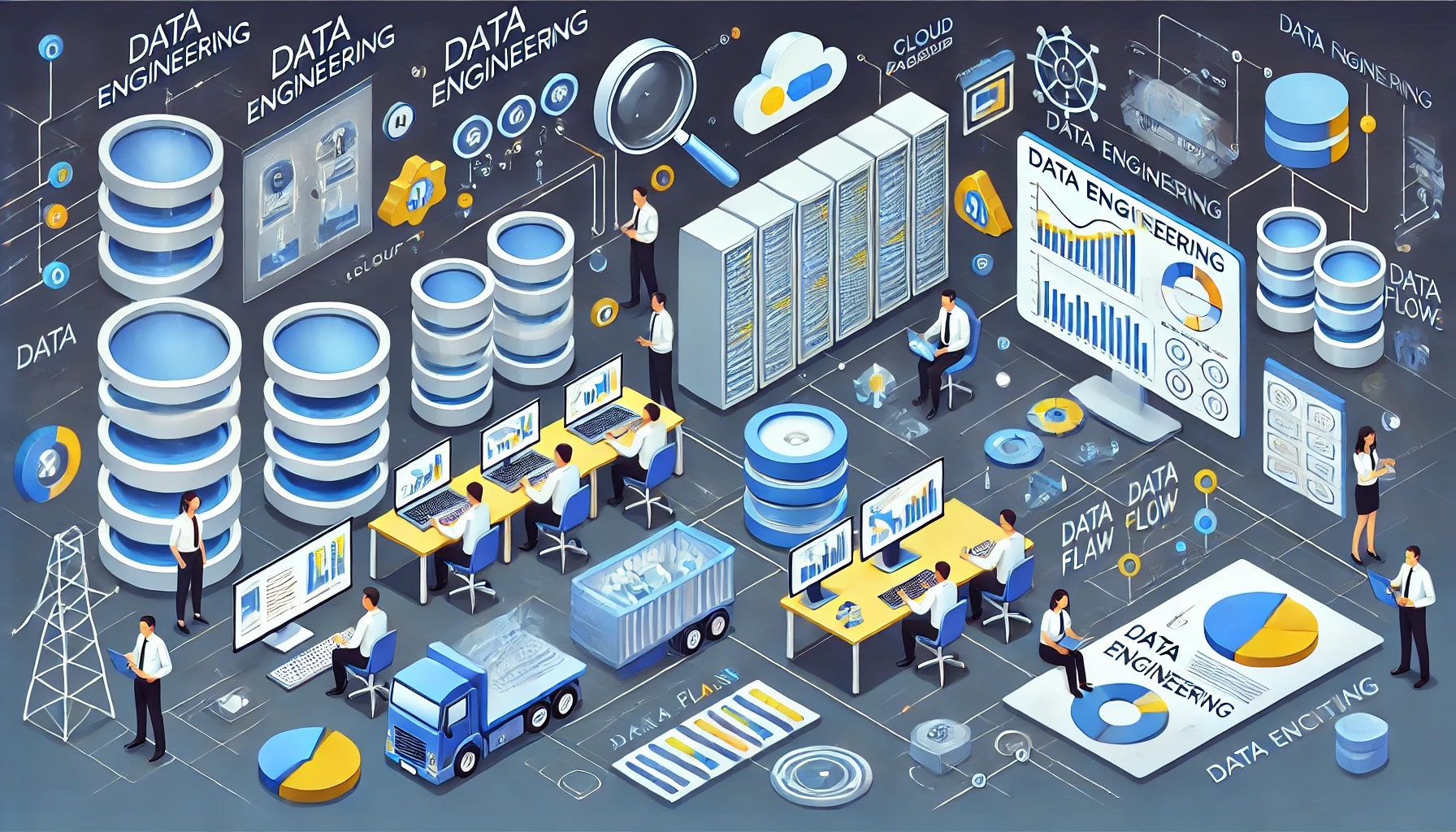Data Engineering
 Our Data Engineering capability is built to address the growing needs of modern organizations to manage, process, and analyze vast amounts of data efficiently. We leverage the latest trends and technologies to provide robust, scalable, and high-performance data solutions.
Our Data Engineering capability is built to address the growing needs of modern organizations to manage, process, and analyze vast amounts of data efficiently. We leverage the latest trends and technologies to provide robust, scalable, and high-performance data solutions.
Key Components
Modern Data Architecture:
Data Lakes and Warehouses: Utilizing data lakes for handling raw data and data warehouses for structured, query-optimized data storage.
Lakehouse Architecture: Combining the best of data lakes and warehouses to support both analytical and transactional workloads.
Advanced Data Integration:
ETL/ELT Processes: Implementing Extract, Transform, Load (ETL) and Extract, Load, Transform (ELT) processes using modern tools like Apache NiFi, Talend, and Fivetran.
Data Pipelines: Building automated, scalable data pipelines with tools like Apache Airflow, AWS Glue, and Google Cloud Dataflow.
Real-time Data Processing:
Stream Processing: Leveraging technologies such as Apache Kafka, Apache Flink, and Spark Streaming to handle real-time data ingestion and processing.
Event-driven Architectures: Implementing event-driven systems to enable real-time analytics and insights.
Scalable Storage Solutions:
Cloud Storage: Utilizing cloud platforms like AWS S3, Google Cloud Storage, and Azure Blob Storage for scalable, durable, and cost-effective data storage.
Distributed Databases: Employing distributed databases like Apache Cassandra, Google Bigtable, and Amazon DynamoDB for handling large-scale, high-velocity data.
Data Quality and Governance:
Data Quality Tools: Using tools like Great Expectations and Apache Griffin to ensure data accuracy, consistency, and completeness.
Governance Frameworks: Implementing data governance frameworks and tools like Collibra and Alation to maintain data compliance and security.
Big Data and Analytics Platforms:
Big Data Technologies: Utilizing Hadoop ecosystems and Spark for big data processing and analytics.
Analytics Platforms: Deploying platforms like Databricks, Snowflake, and Google BigQuery for advanced analytics and machine learning integration.
Cloud-native Data Engineering:
Embracing cloud-native services and serverless architectures to enhance scalability, flexibility, and cost-efficiency.
DataOps:
Implementing DataOps practices to streamline data workflows, improve collaboration, and ensure continuous delivery of data solutions.
AI and Machine Learning Integration:
Integrating AI and machine learning models into data pipelines for predictive analytics, anomaly detection, and automated decision-making.
Edge Computing:
Adopting edge computing technologies to process data closer to its source, reducing latency and bandwidth usage.
Data Mesh:
Moving towards a decentralized data architecture with data mesh principles to improve scalability, data ownership, and domain-oriented data management.
